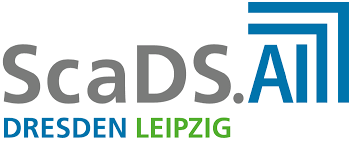
|
Event-Oriented Dynamic Adaptation of Workflows: Model, Architecture and Implementation
Dissertation, Univ. Leipzig |
|
| Dissertation |
Futher information: http://lips.informatik.uni-leipzig.de/pub/2002-55
Abstract
Workflow management is widely accepted as a core technology to support long-term business processes in heterogeneous and distributed environments. However, conventional workflow management systems do not provide sufficient flexibility support to cope with the broad range of failure situations that may occur during workflow execution. In particular, most systems do not allow to dynamically adapt a workflow due to a failure situation, e.g., to dynamically drop or insert execution steps. As a contribution to overcome these limitations, this dissertation introduces the agent-based workflow management system AgentWork. AgentWork supports the definition, the execution and, as its main contribution, the event-oriented and semi-automated dynamic adaptation of workflows. Two strategies for automatic workflow adaptation are provided. Predictive adaptation adapts workflow parts affected by a failure in advance (predictively), typically as soon as the failure is detected. This is advantageous in many situations and gives enough time to meet organizational constraints for adapted workflow parts. Reactive adaptation is typically performed when predictive adaptation is not possible. In this case, adaptation is performed when the affected workflow part is to be executed, e.g., before an activity is executed it is checked whether it is subject to a workflow adaptation such as dropping, postponement or replacement. In particular, the following contributions are provided by AgentWork: A Formal Model for Workflow Definition, Execution, and Estimation: In this context, AgentWork first provides an object-oriented workflow definition language. This language allows for the definition of a workflows control and data flow. Furthermore, a workflows cooperation with other workflows or workflow systems can be specified. Second, AgentWork provides a precise workflow execution model. This is necessary, as a running workflow usually is a complex collection of concurrent activities and data flow processes, and as failure situations and dynamic adaptations affect running workflows. Furthermore, mechanisms for the estimation of a workflows future execution behavior are provided. These mechanisms are of particular importance for predictive adaptation. Mechanisms for Determining and Processing Failure Events and Failure Actions: AgentWork provides mechanisms to decide whether an event constitutes a failure situation and what has to be done to cope with this failure. This is formally achieved by evaluating event-condition-action rules where the event-condition part describes under which condition an event has to be viewed as a failure event. The action part represents the necessary actions needed to cope with the failure. To support the temporal dimension of events and actions, this dissertation provides a novel event-condition-action model based on a temporal object-oriented logic. Mechanisms for the Adaptation of Affected Workflows: In case of failure situations it has to be decided how an affected workflow has to be dynamically adapted on the node and edge level. AgentWork provides a novel approach that combines the two principal strategies reactive adaptation and predictive adaptation. Depending on the context of the failure, the appropriate strategy is selected. Furthermore, control flow adaptation operators are provided which translate failure actions into structural control flow adaptations. Data flow operators adapt the data flow after a control flow adaptation, if necessary. Mechanisms for the Handling of Inter-Workflow Implications of Failure Situations: AgentWork provides novel mechanisms to decide whether a failure situation occurring to a workflow affects other workflows that communicate and cooperate with this workflow. In particular, AgentWork derives the temporal implications of a dynamic adaptation by estimating the duration that will be needed to process the changed workflow definition (in comparison with the original definition). Furthermore, qualitative implications of the dynamic change are determined. For this purpose, so-called quality measuring objects are introduced. All mechanisms provided by AgentWork include that users may interact during the failure handling process. In particular, the user has the possibility to reject or modify suggested workflow adaptations. A Prototypical Implementation: Finally, a prototypical Corba-based implementation of AgentWork is described. This implementation supports the integration of AgentWork into the distributed and heterogeneous environments of real-world organizations such as hospitals or insurance business enterprises.


